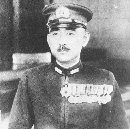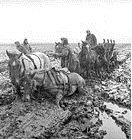Rasputitsa
Posts: 2903
Joined: 6/30/2001
From: Bedfordshire UK
Status: offline

|
Almost all of what is being discussed is hindsight. In 1940 very few people would have expected France to fall so fast, the German High Command had no plan when they found themselves at the Channel coast, with only 22 miles to cross. 'Sea Lion' would have to have been planned as an immediate follow up to 'Fall Gelb', with all planning and preparation taking place simultaneously.
In 1940 very few people would have expected the BEF to be able to escape from France. Hiltler did not let the British escape, he like almost everyone else did not expect that an evacuation could succeed. The British Admiralty, who were in the best position to judge, thought that only 45,000 men might be saved.
In 1940 very few people knew the potential of the British air defence system, nothing like it existed anywhere else. The Luftwaffe failed to appreciate its effectiveness and had no plan to combat it. The RAF would not have been destroyed, as before losses became critical, their forces would have been withdrawn beyond effective range and held for the for the invasion. It was beyond the power of the Luftwaffe to totally destroy industrial complexes. The Allies took much longer to achieve this against Germany in 1943/44/45, with vastly greater forces. The Luftwaffe had nowhere near the resources or time available to achieve this, even if they had known what to hit. Most bombing attacks blew out the windows and took down the roofs, but machine tools are rarely destroyed and can quickly be set up again somewhere else. The best you could hope for was temporary disruption.
On the point about British suicide attacks, when Scharnhorst and Gniesenau were making their daylight Channel dash, six Swordfish bi-plane torpedo bombers were ordered to attack them. They had expected to attack at night and knew that a daylight mission would be suicide. The base commander at Manston called the Admiralty in London and pleaded for the attack to be cancelled. The reply was that, the Royal Navy would attack the enemy whenever and where ever he could be found. Lt. Commander Esmonde took off with his flight, knowing that they had very little chance of returning. In 1939/40 German victories looked easy, but that was because their opponents either did not have the will, or else the power, to resist. When confronted by a resolute defence the Germans suffered serious casualties. Had the Germans attempted to cross the Channel the fighting would have been vicious and brutal, but then that's using hindsight.
|
 Printable Version
Printable Version






















 New Messages
New Messages No New Messages
No New Messages Hot Topic w/ New Messages
Hot Topic w/ New Messages Hot Topic w/o New Messages
Hot Topic w/o New Messages Locked w/ New Messages
Locked w/ New Messages Locked w/o New Messages
Locked w/o New Messages Post New Thread
Post New Thread